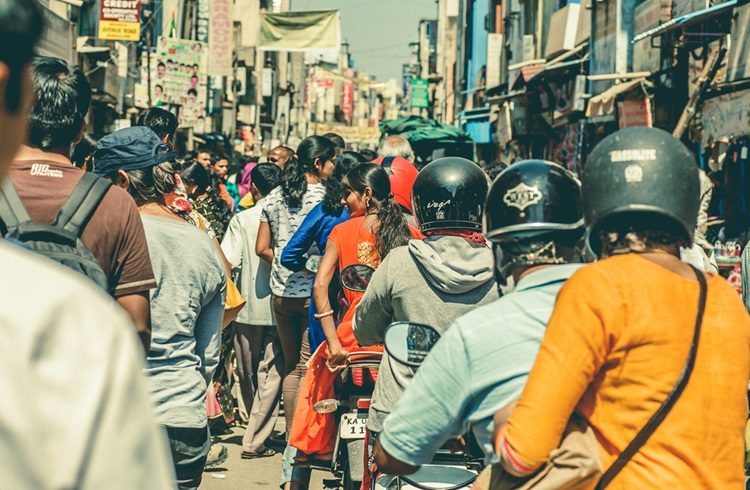10 Common Health Issues in Bangalore and How to Stay Protected
10 Common Health Issues in Bangalore and How to Stay Protected

The city of Bengaluru has a reputation as the home to top-notch innovators and entrepreneurs. People chasing big dreams or migrating from other cities to find better livelihood opportunities must care for their health, as stress can adversely affect them. Along with that, rapid urbanisation, changing lifestyles, and environmental factors can lead to many health issues for the dwellers of this bustling metropolis in South India. Here are 10 common health issues in Bangalore and how to stay protected.
What are Communicable Diseases?
Certain diseases get transmitted through physical contact, contaminated food or water, insect bites, or air droplets. These diseases are called communicable or infectious diseases and are caused by bacteria, viruses, fungi, or parasites. They can spread from person to person, animal to person, or by touching contaminated surfaces.
Common communicable diseases in Bangalore
Being a densely populated city, Bangalore is home to some common communicable diseases, such as –
1. Dengue & Malaria
In 2023, more than 19,000 dengue cases were reported from Karnataka, with Bangalore accounting for 50% of the cases. Malaria is also a major health concern in some parts of Bangalore. The ailment spreads through the bite of infected Anopheles mosquitoes. The city has reported 400-700 cases every year for the past several years, as per the National Vector Borne Disease Control Programme (NVBDCP).
2. Tuberculosis (TB)
According to the India Tuberculosis Report, 2023, Karnataka recorded 80,419 cases, a substantial share coming from Bangalore.
3. H1N1 Influenza
H1N1 spreads through air droplets from the cough or sneeze of infected persons. Over the past few years, the city has reported several outbreaks of the disease.
4. Gastrointestinal Infections
Poor sanitation and contaminated food and water are the primary causes of gastrointestinal infections like typhoid and cholera. The city reports hundreds of cases every year, especially during monsoons.
Factors leading to these common diseases
There are many factors which lead to common diseases in Bangalore, such as –
• Urbanisation and population density
The city’s rapid urbanisation and migration have led to increased population density. Crowded living conditions with poor ventilation among low-income groups lead to the spread of infectious diseases like influenza and tuberculosis.
• Poor sanitation
Stagnant water around homes and unhygienic living conditions become a breeding ground for mosquitoes, putting the people of Bangalore at increased risk of dengue and malaria.
• Climate Conditions
Bangalore’s temperature variations and climatic conditions increase seasonal illnesses, allergies, and skin diseases.
• Air Pollution
The high air pollution levels due to traffic, construction, and industry pollutants are a significant reason for the increase in respiratory diseases like bronchitis, asthma, and COPD (chronic obstructive pulmonary disease).
• Dietary habits
Increased consumption of junk and processed foods, sugary beverages, and unhealthy fats increase the risk of gastrointestinal diseases, obesity, and other lifestyle diseases.
• Lack of Awareness
Due to a lack of awareness about regular check-ups, vaccinations, and preventive measures, people are vulnerable to illnesses and also contribute to the spread of infectious diseases.
• Travel
Migration for greener pastures brings with it the risk of infections.
Tips to Prevent Common Diseases in Bangalore
The below tips can help protect you from common diseases in Bangalore –
• Follow a healthy lifestyle comprising a balanced diet (vegetables, fruits, healthy fats, lean proteins, fibre, etc.), regular exercise, and adequate sleep. This will help boost immunity and protect you from common diseases. Avoid junk and processed foods and sugary drinks.
• Keep your surroundings clean. Ensure there’s no stagnant water in flower pots or AC vents around your home. Mosquitoes breed in such places, increasing the risk of malaria and dengue.
• Use mosquito repellents and wear long-sleeved clothing while stepping out to avoid mosquito bites.
• Practice hand hygiene like washing hands regularly with soap and water. Cover your mouth and nose while coughing or sneezing to contain the spread of infection.
• To prevent water-borne diseases like typhoid and cholera, avoid consuming street food or raw food and drink boiled or filtered water.
• Avoid contact with infected persons and crowded places, especially during outbreaks of seasonal flu and other communicable diseases.
• Stay hydrated and consume probiotics like yoghurt to promote gut health.
• Get vaccinated.
Conclusion
Common health issues like malaria, dengue, and viral fever in Bangalore can become medical emergencies. Staying financially prepared with a comprehensive health insurance policy is the best way to protect your savings and well-being. For additional protection, you can opt for critical illness insurance as an add-on to your standard healthcare policy or buy it as a standalone plan.
Disclaimer: The above information is for illustrative purposes only. For more details, please refer to the policy wordings and prospectus before concluding the sales.
RELATED ARTICLES
Viral Fever – Symptoms, Causes, Prevention and Treatment
Be Aware of these 10 Common Health Issues in Women
Are Lifestyle Diseases Covered by Your health Insurance Policy? Find out
Yoga for Preventing Diseases: How Yoga Can Help Combat Health Issues?
What Are the Common Wellness Benefits of Health Insurance?










 Health Insurance
Health Insurance  Travel Insurance
Travel Insurance  Car Insurance
Car Insurance  Cyber Insurance
Cyber Insurance  Critical Illness Insurance
Critical Illness Insurance
 Pet Insurance
Pet Insurance
 Bike/Two Wheeler Insurance
Bike/Two Wheeler Insurance  Home Insurance
Home Insurance  Third Party Vehicle Ins.
Third Party Vehicle Ins.  Tractor Insurance
Tractor Insurance  Goods Carrying Vehicle Ins.
Goods Carrying Vehicle Ins.  Passenger Carrying Vehicle Ins.
Passenger Carrying Vehicle Ins.  Compulsory Personal Accident Insurance
Compulsory Personal Accident Insurance  Travel Insurance
Travel Insurance  Rural
Rural 











